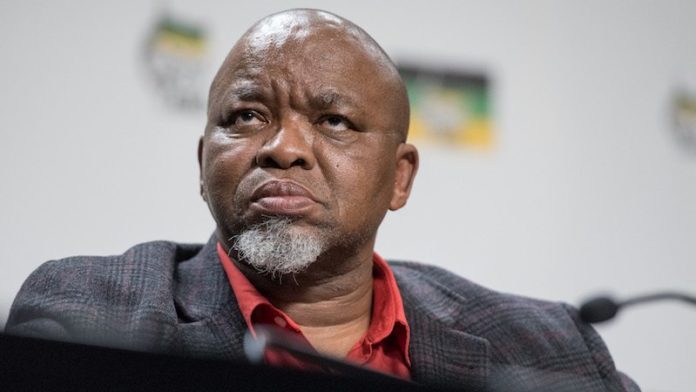
THE South African mining industry should keep Gwede Mantashe “accountable” after the country’s mines minister said a new mineral cadastre would be ready next year.
“The industry would love to see the new cadastre. The industry has been promised one next year. Let’s keep him accountable,” said Andries Rossouw, PwC’s Africa Energy, Utilities and Resources Leader in a presentation to media on Tuesday.
Rossouw’s comment was less a call to arms than an anecdotal response to a question during the publication of PwC’s Mine 2024 report. But it reflects the improved expectations in the local mining sector just as a lower interest rate cycle begins and the Government of National Unity continues to enjoy a honeymoon period.
These improved business conditions, including the imminence of the minerals cadastre, are likely to be discussed at the Joburg Indaba conference, the South African mining industry’s most prominent talk shop, which gets underway on Wednesday.
Mantashe is scheduled to provide the last of the conference’s presentations on Thursday after ignoring the event in 2023 so he could focus on national elections. But party politics also enabled Mantashe to side-step questions about his department’s failure to implement the cadastre. It was only at another conference – Africa Down Under in Perth on September 4 – that Mantashe provided an update on the cadastre.
“In essence, the meticulous implementation of the new system is advancing very well with an intention to complete the migration process by June next year,” said Mantashe regarding the laborious task of putting existing mineral data in the current clapped out SAMRAD onto the new minerals cadastre.
In May, the government announced a service level agreement had been signed with the PGM Consortium consisting of Canadian companies GeoTech Systems, MITS Institute and Gemini GIS & Environmental Services
Mantashe said since the service provider had completed the first phase of the project including “the requirements with respect to system hosting, software integration, the enhancement of cybersecurity in line with our governance principles”.
One of the other factors contributing to South African mining’s new-found feel-good is improved electricity supply. It is months since Eskom rationed power. Rossouw said this would benefit the chrome sector especially as global prices incentivised more supply. However, lower prices for ferrochrome would moderate South Africa’s gains.
“There is lots of optimism in South African mining as seen in treasury bill rates which reflect lower risk in the country,” said Rossouw. “With regard to the GNU, it’s the extent to which you can bring that optimism to fruition” that would matter for the industry, he said.










